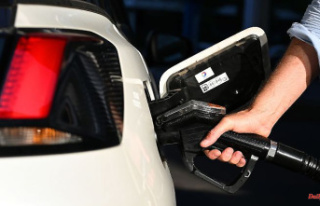Plau (dpa/mv) - The sharp rise in electricity prices also leads to higher costs for drinking water and waste water in Mecklenburg-Western Pomerania. "The increase in fees will be very moderate compared to other areas," said Environment Minister Till Backhaus (SPD) on Wednesday at a meeting of water suppliers in northern Germany in Plau am See (Ludwigslust-Parchim). According to initial estimates, consumers will have to pay around 10 to 30 percent more water and sewage fees per year - depending on the region. The organizer of the conference in Plau was the North regional group of the Federal Association of Energy and Water Management (bdew).
"For a typical three-person household, this can be between 30 and 40 euros more per year," said the chairman of the bdew water management steering group in Mecklenburg-Western Pomerania, Hanno Nispel, from Schwerin. The reason for this is that electricity accounts for a large proportion of the total costs of water companies. However, some electricity suppliers have more than doubled their prices.
The approximately 50 companies in the state benefit from the fact that sewage treatment and water works have been working with energy self-sufficiency for a long time, said Backhaus. In addition, it is up to every citizen to use water more sparingly. With a price of 1.50 euros per cubic meter, the costs are low compared to other federal states. This is due to the fact that water is available relatively cheaply in Mecklenburg-Western Pomerania.
As Nispel further explained, the waterworks are well prepared for power outages in the country. There are emergency generators that run on heating oil and self-sufficient sewage treatment plants that can continue to work even in the event of a blackout.
Backhaus urged the farmers in the north-east not to take the water for the sprinkler systems from the groundwater, but to build their own reservoirs in order to stock up on surface water. Mecklenburg-Western Pomerania plans that farmers should pay a price for groundwater extraction in the future.












